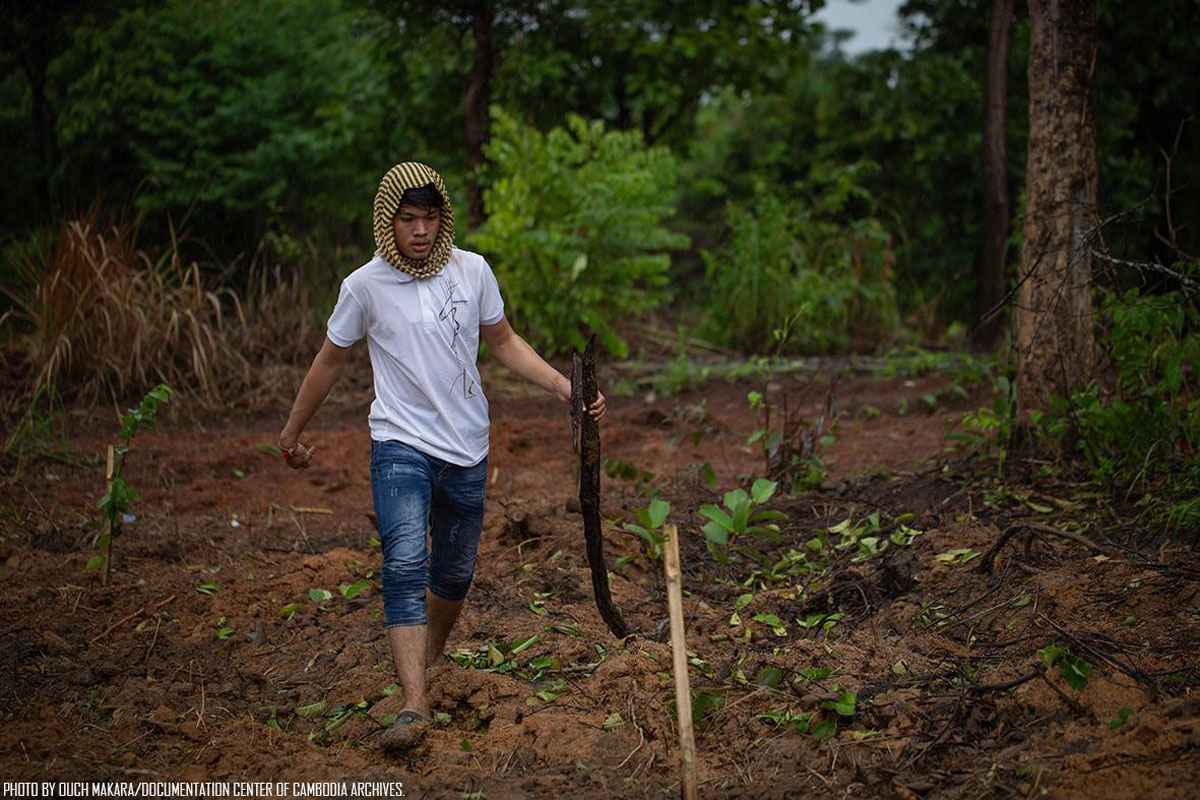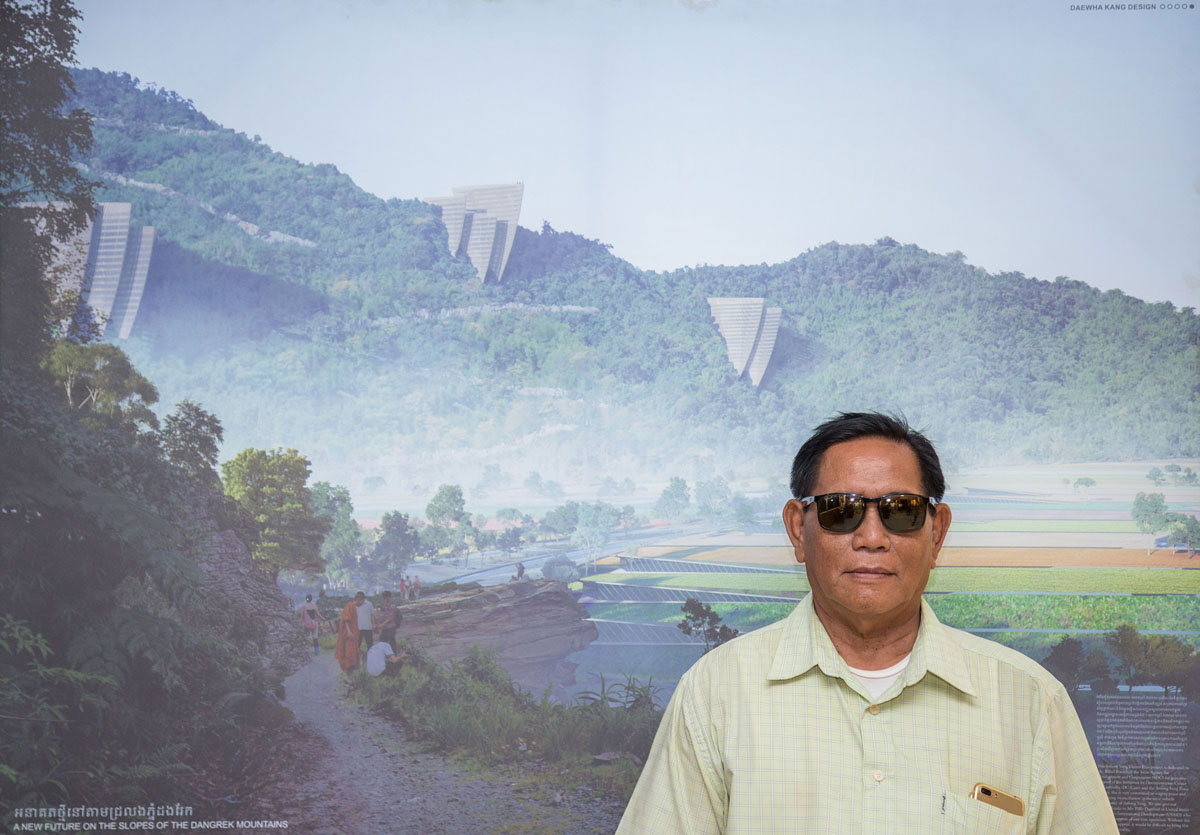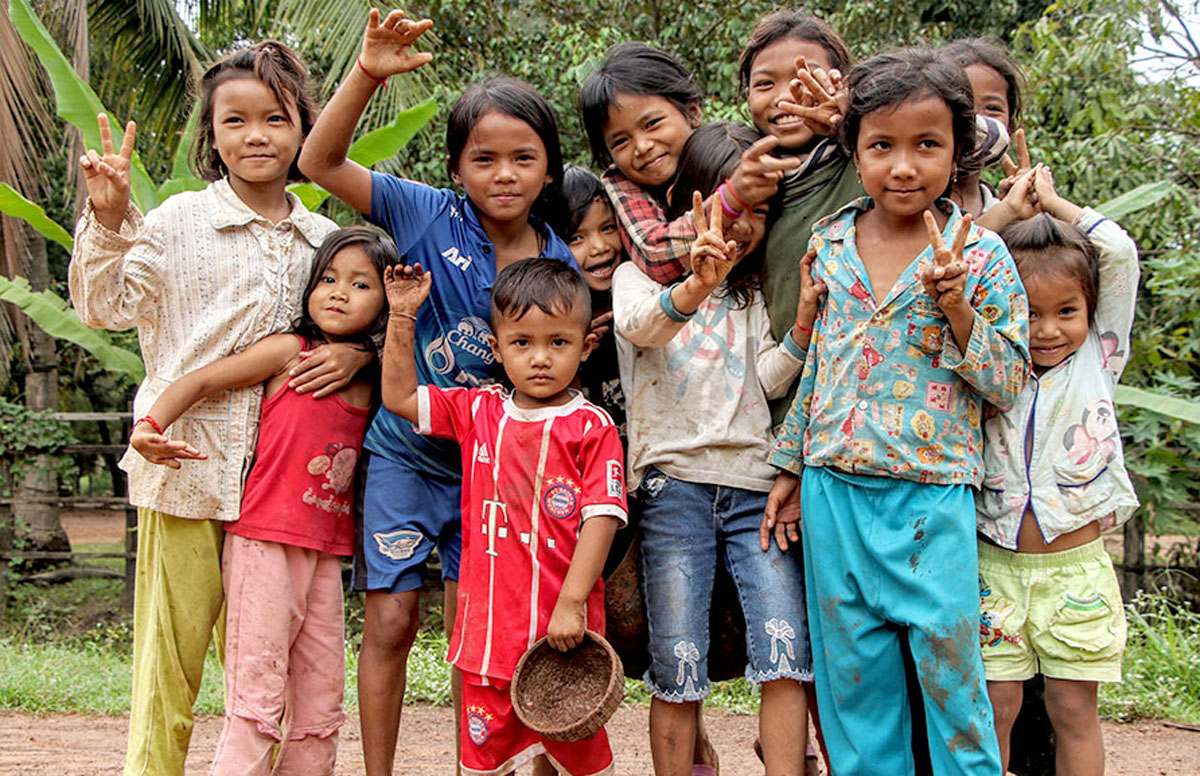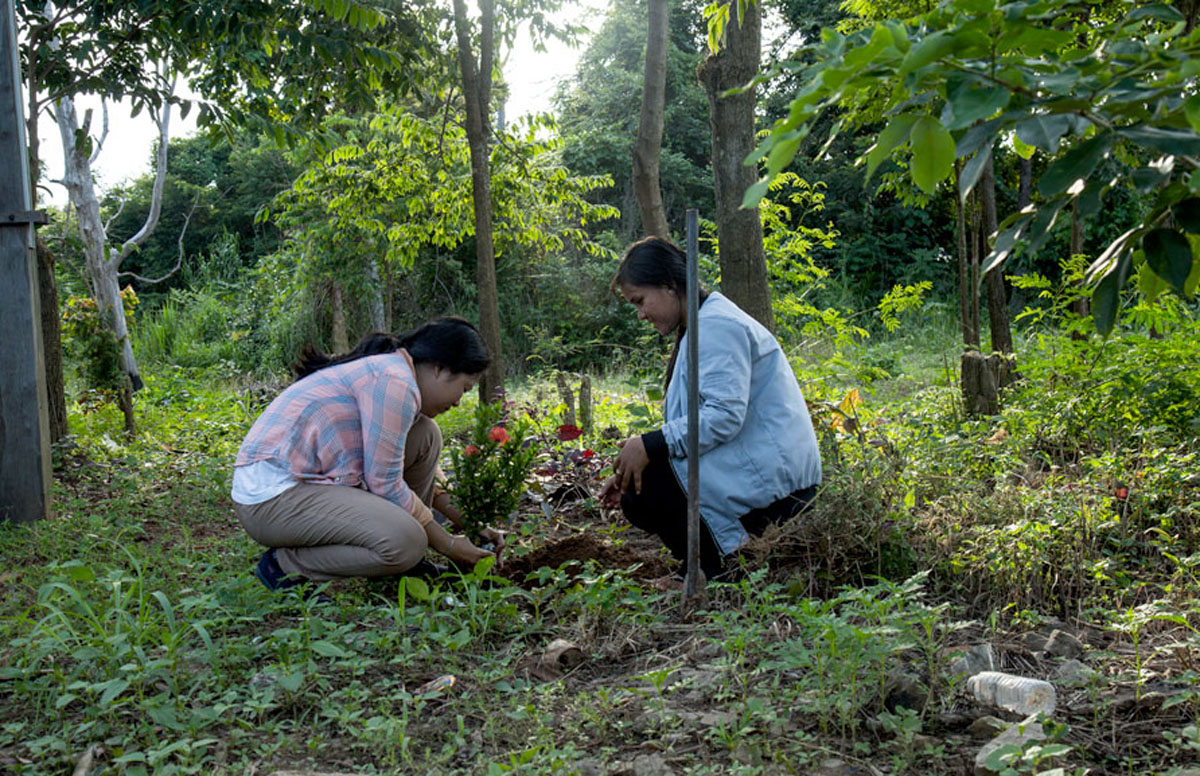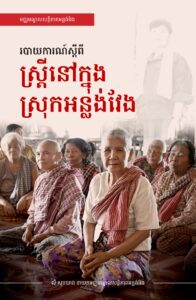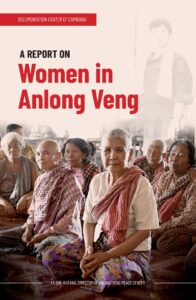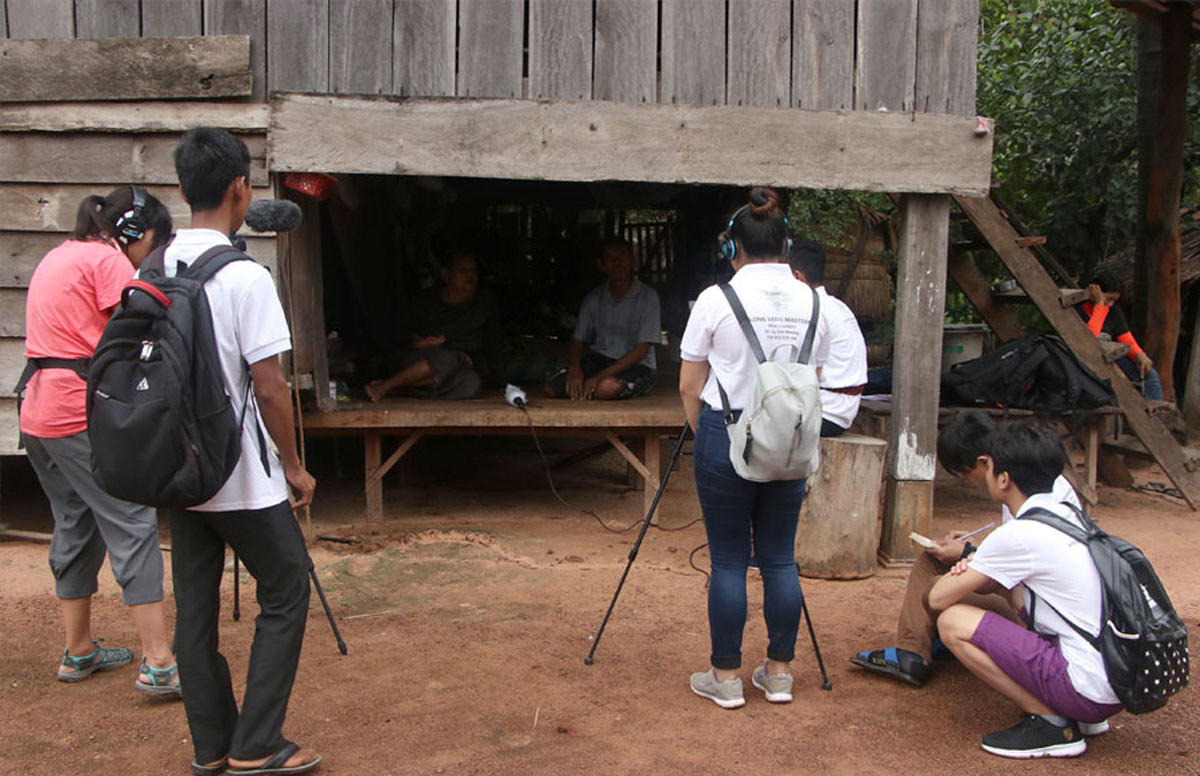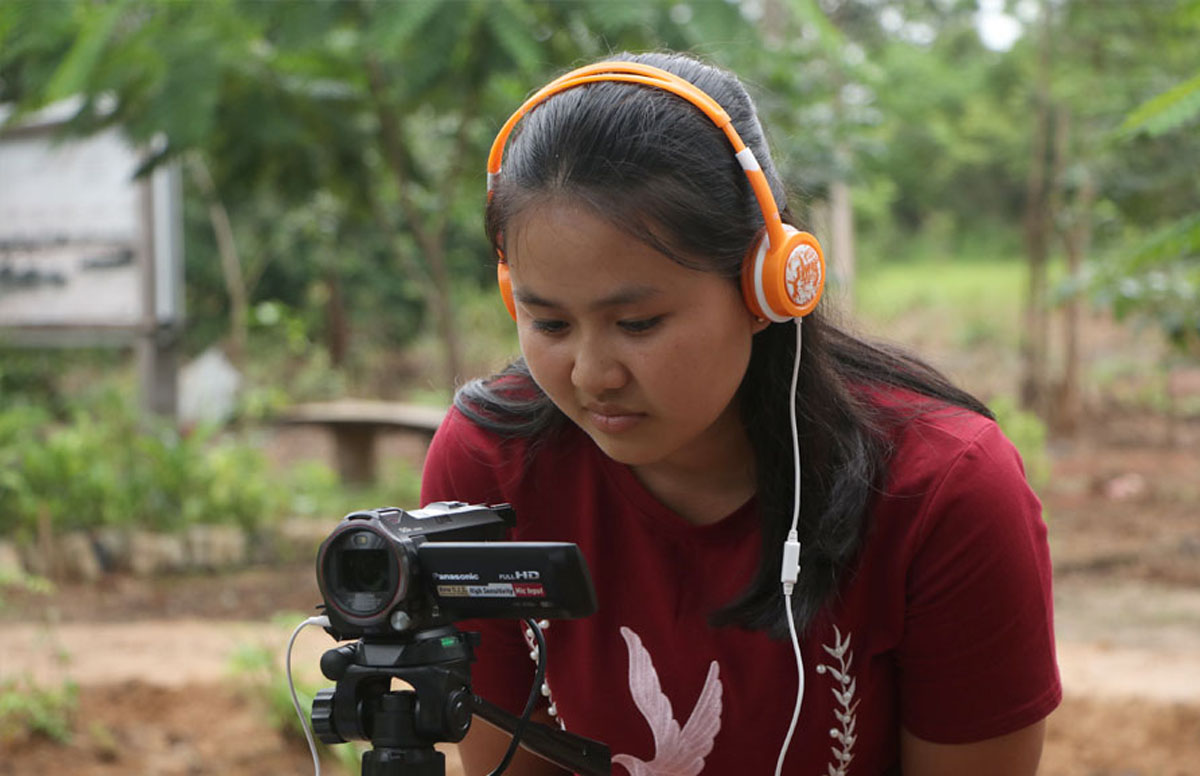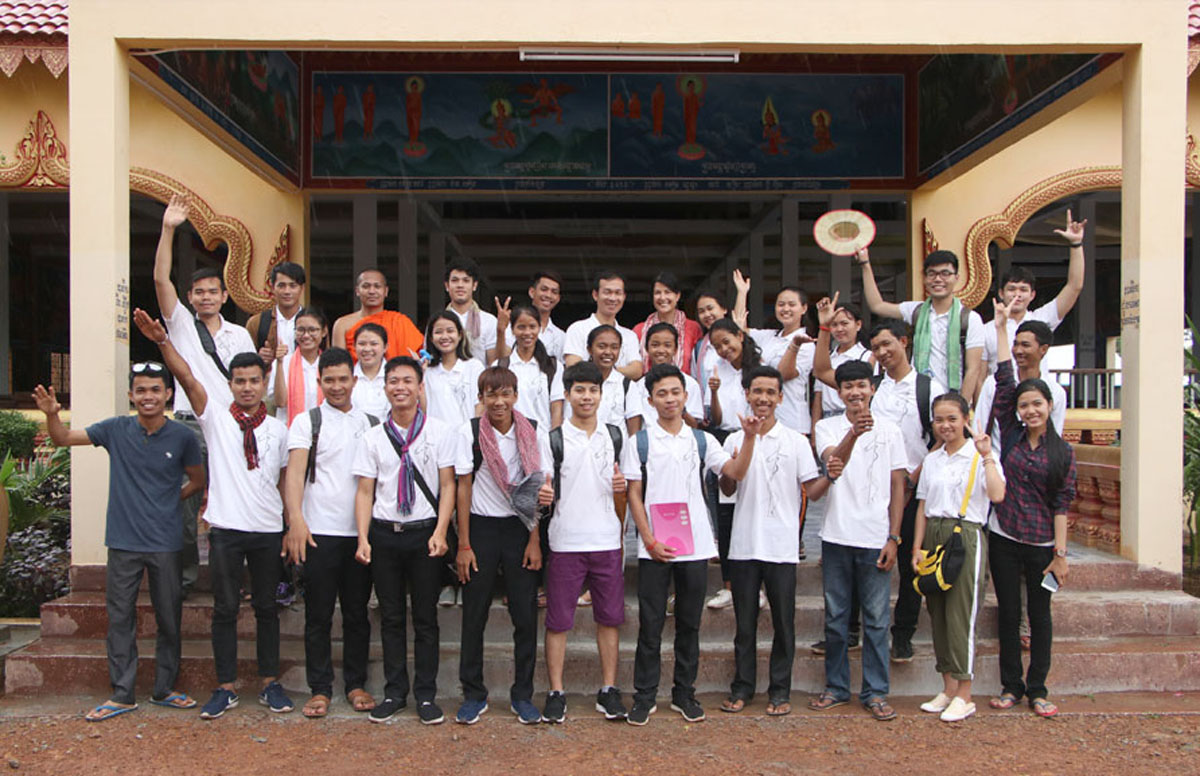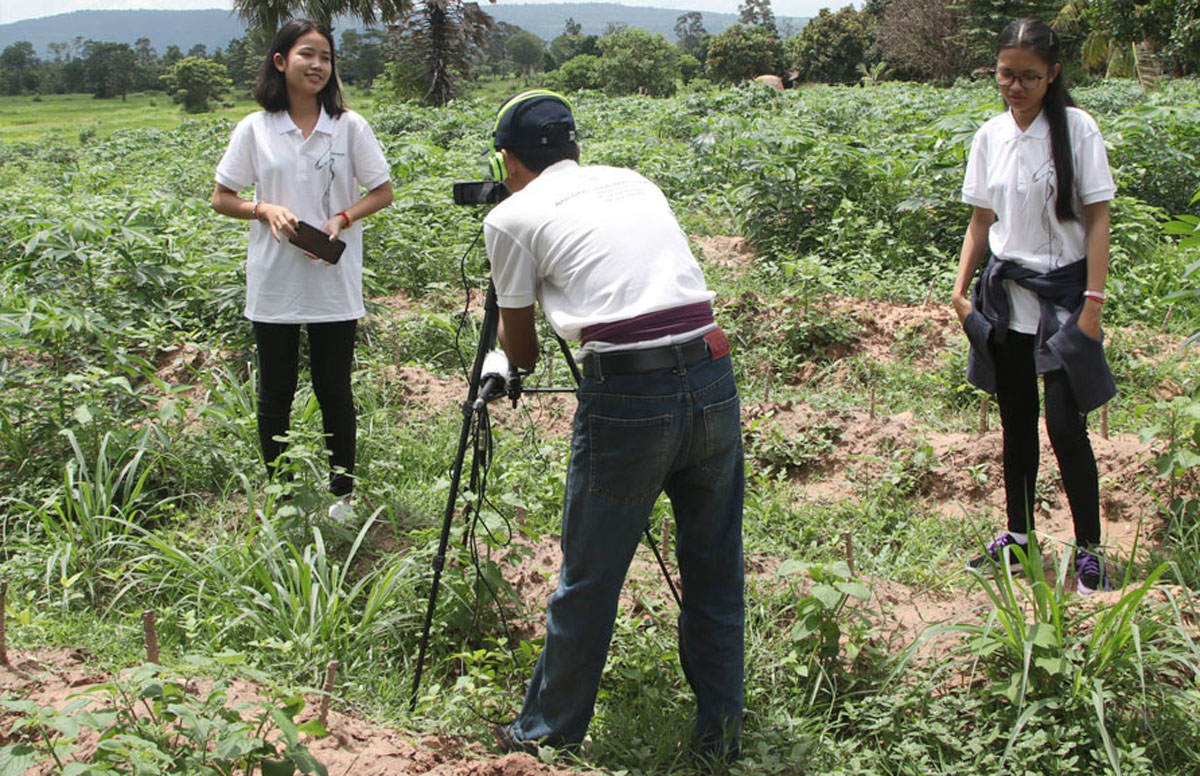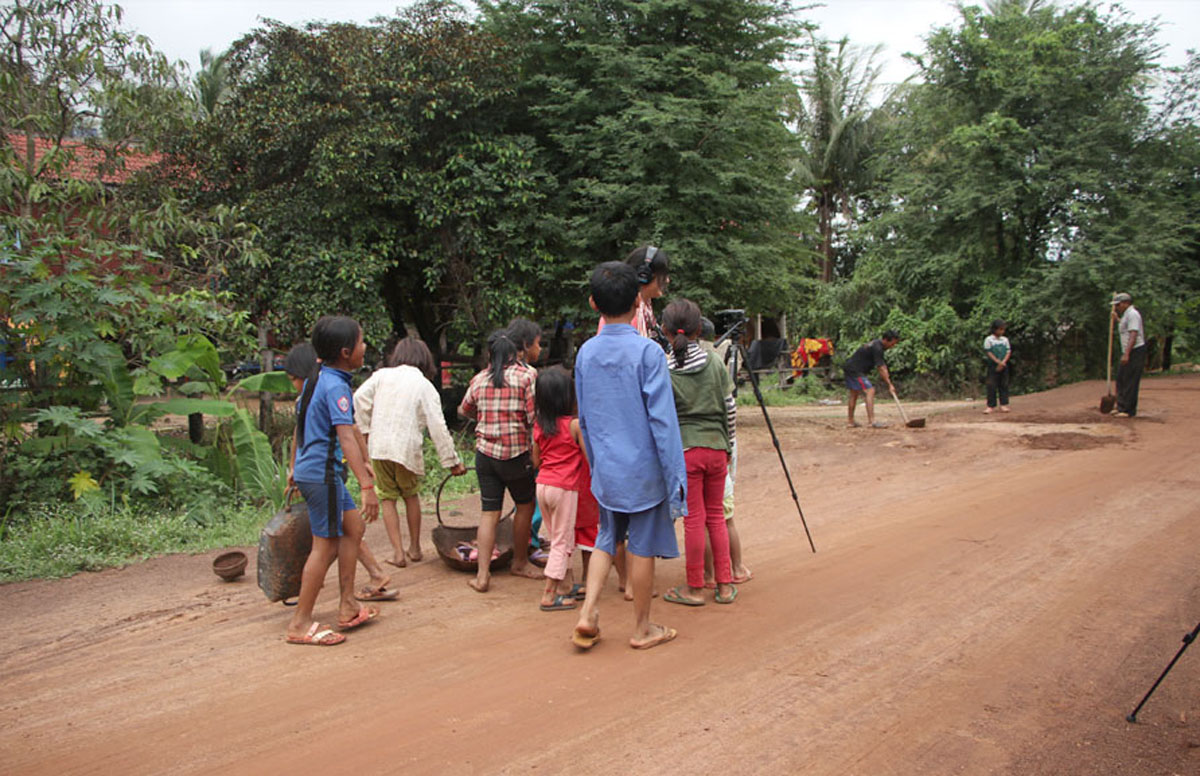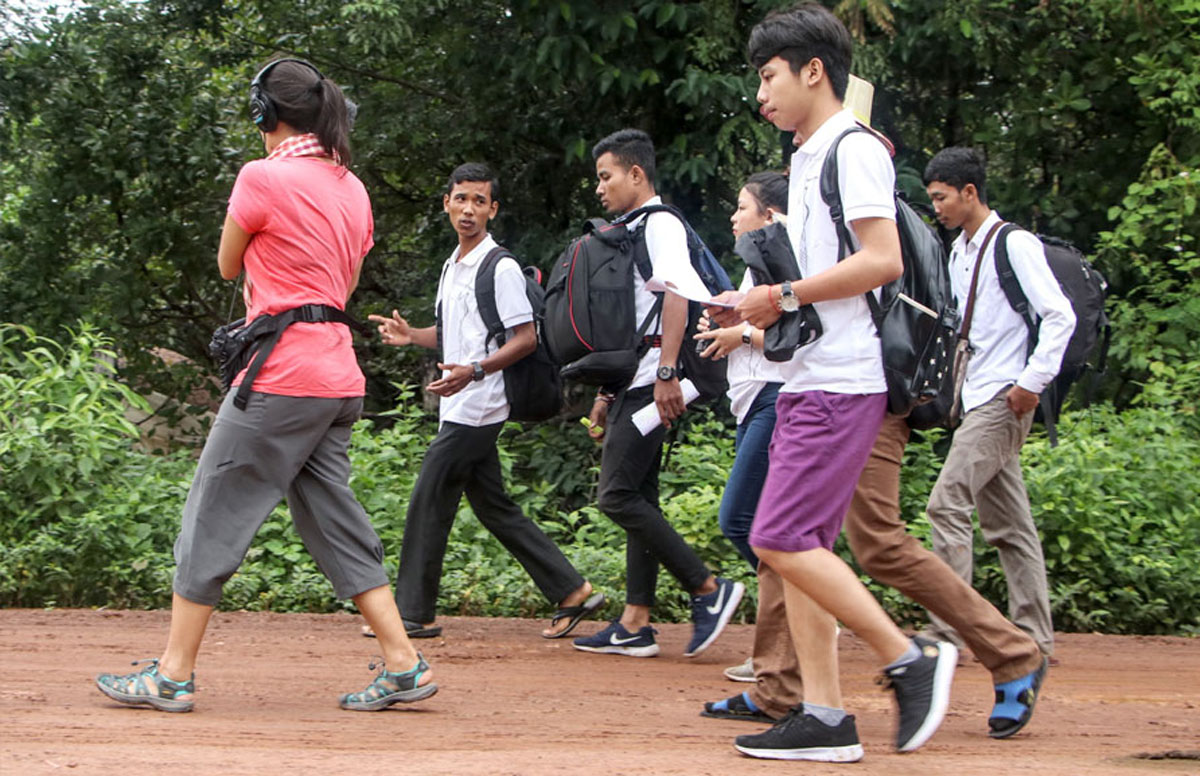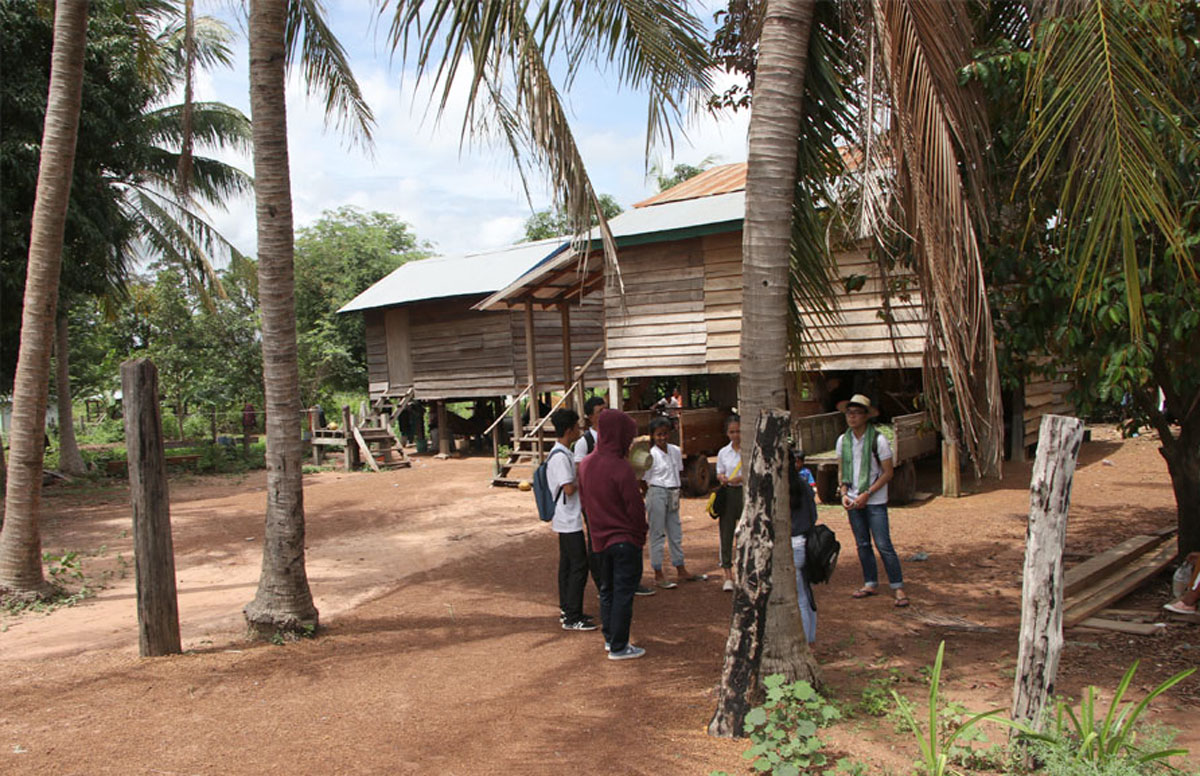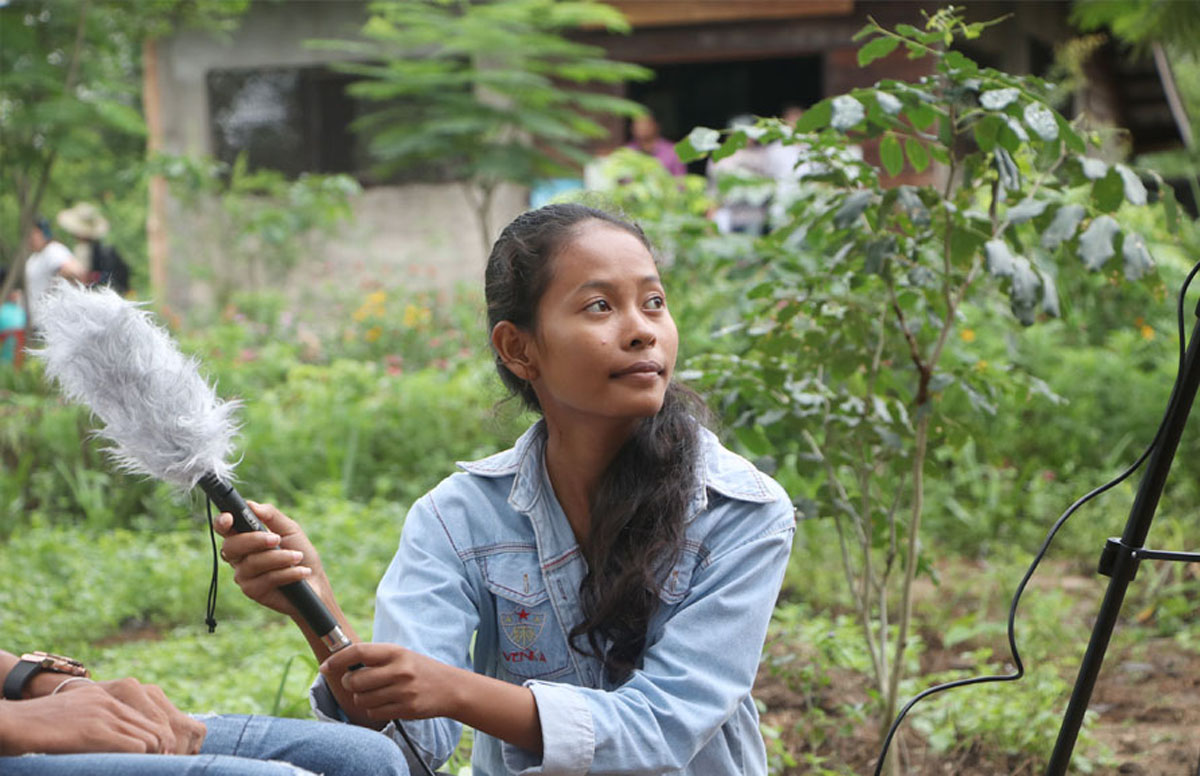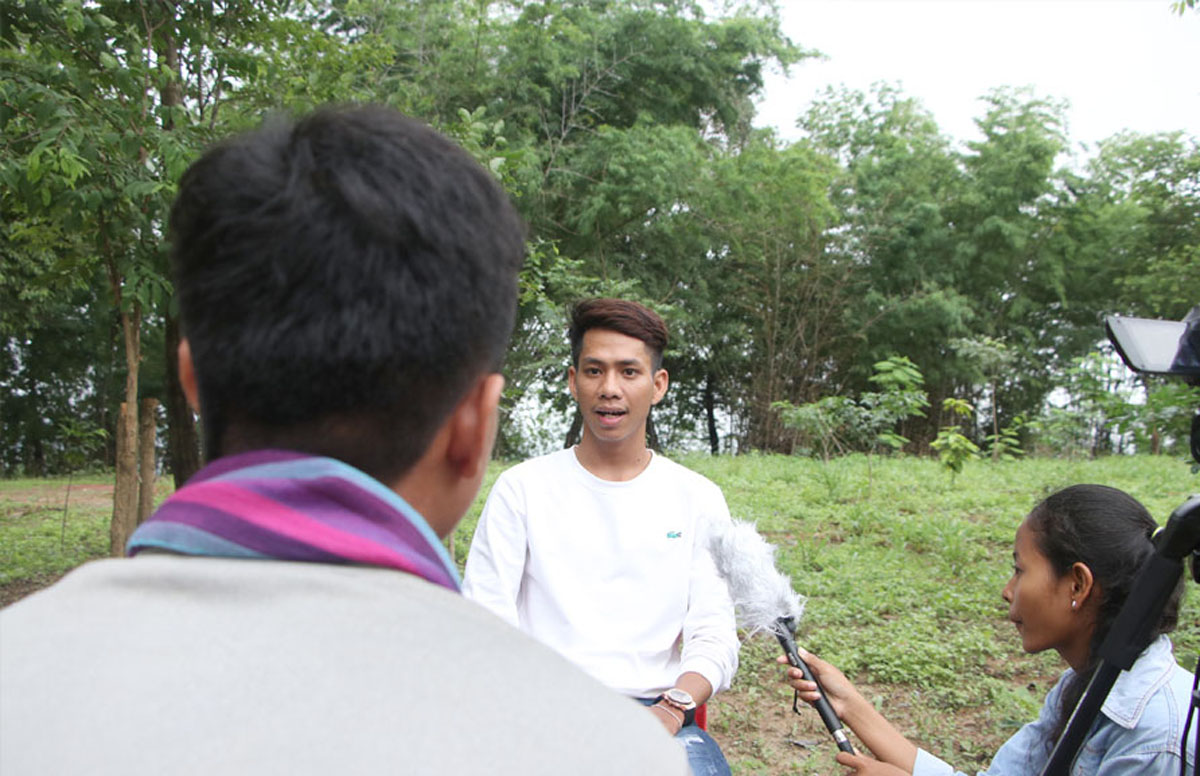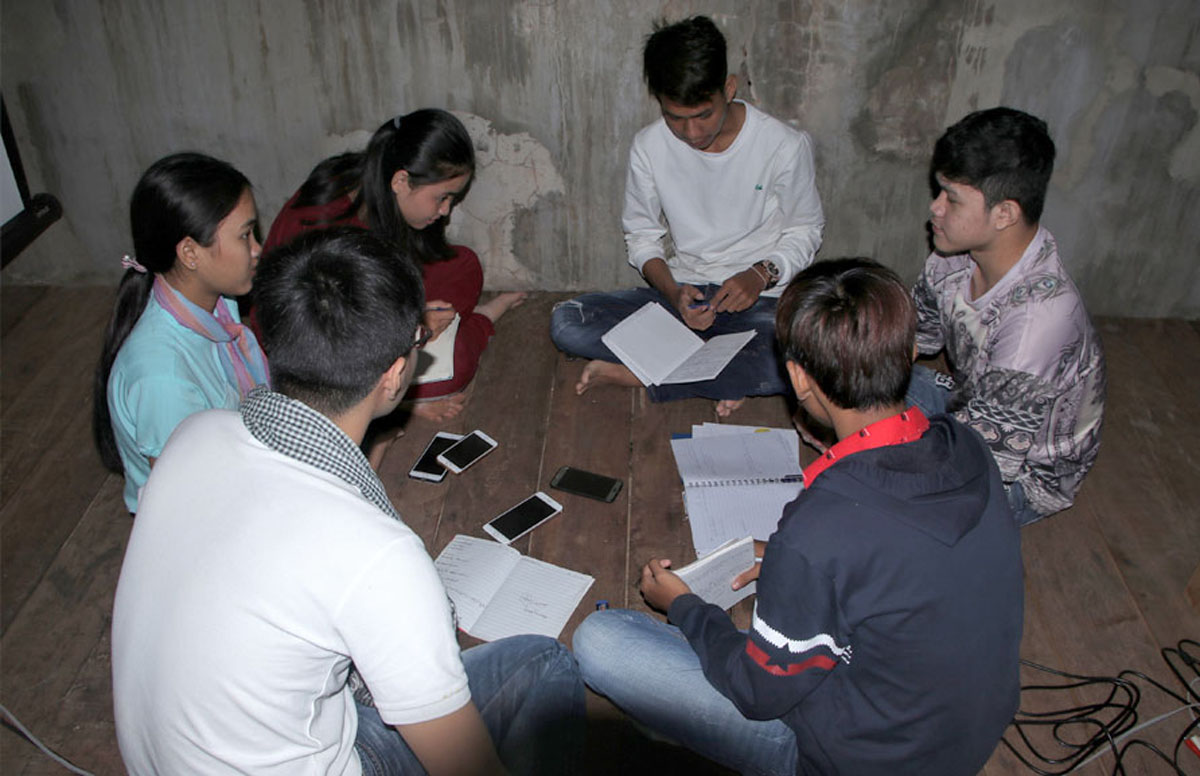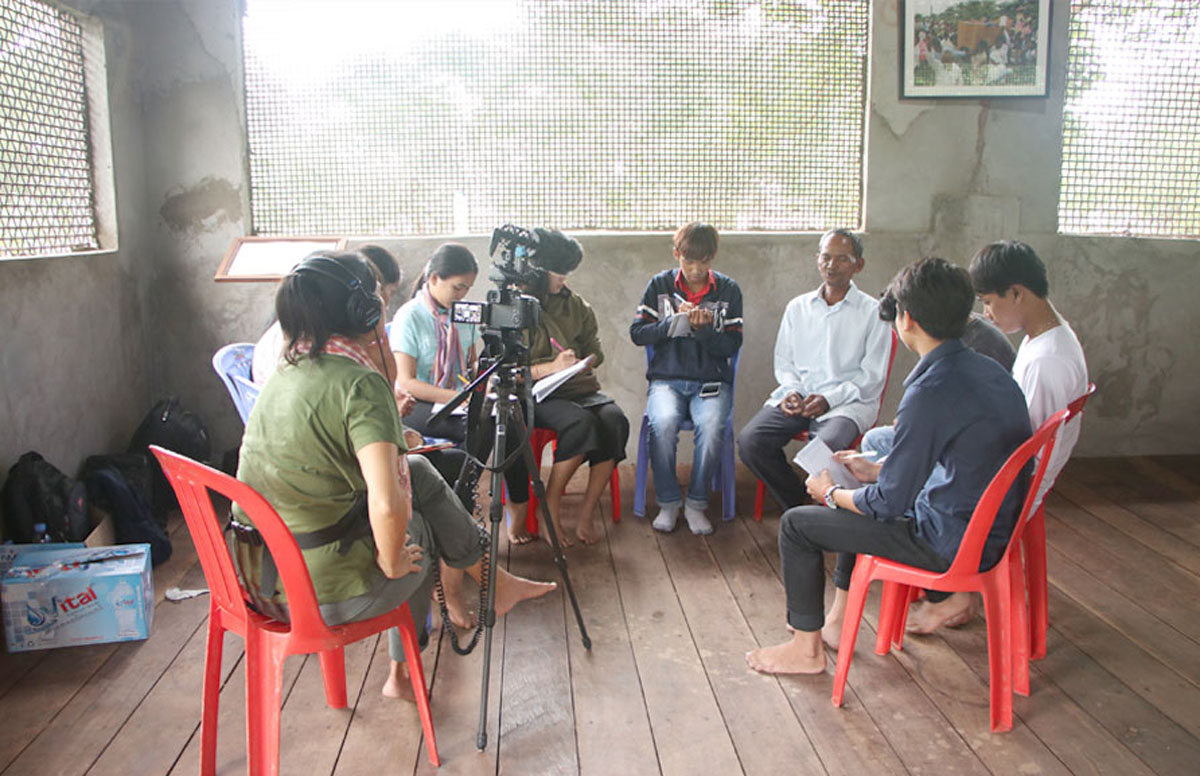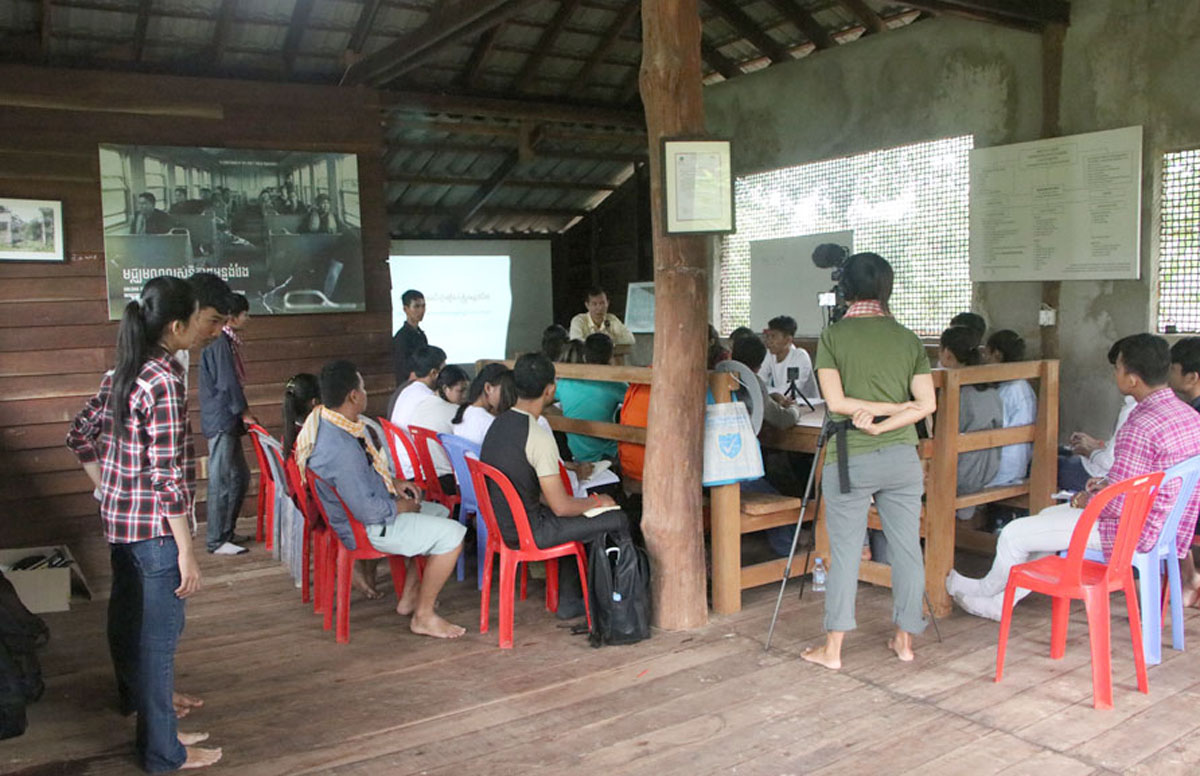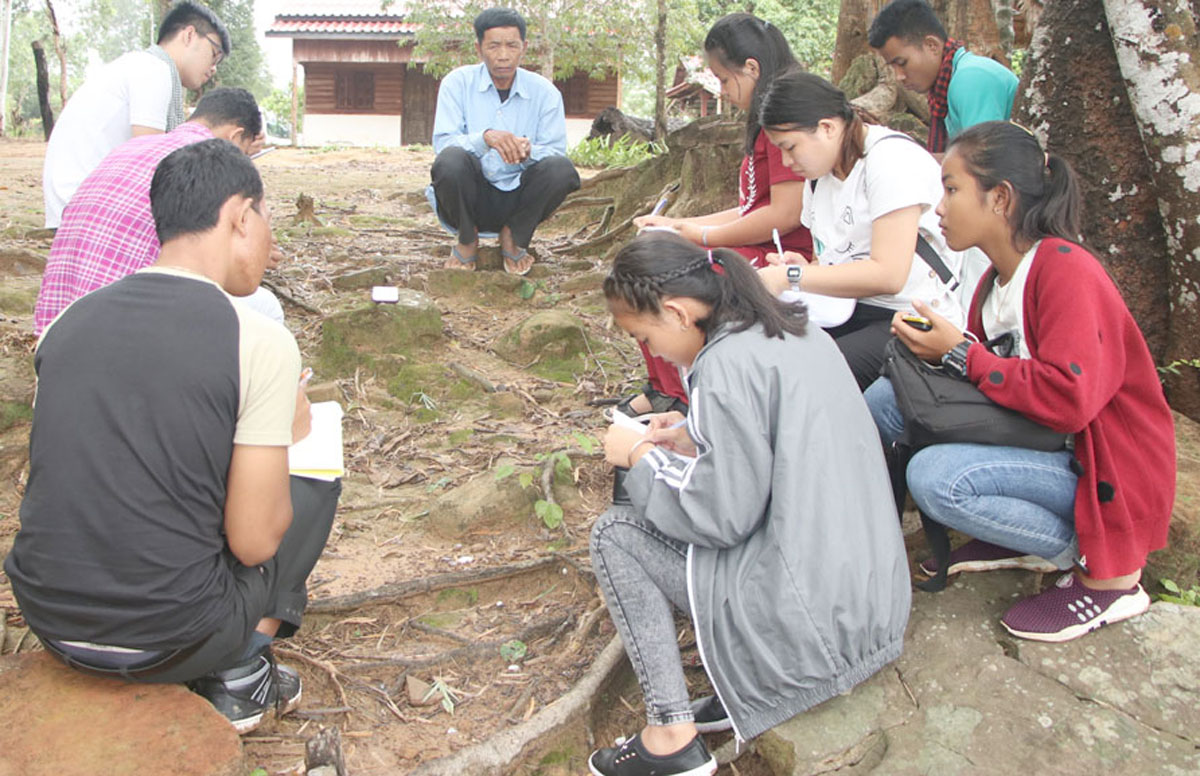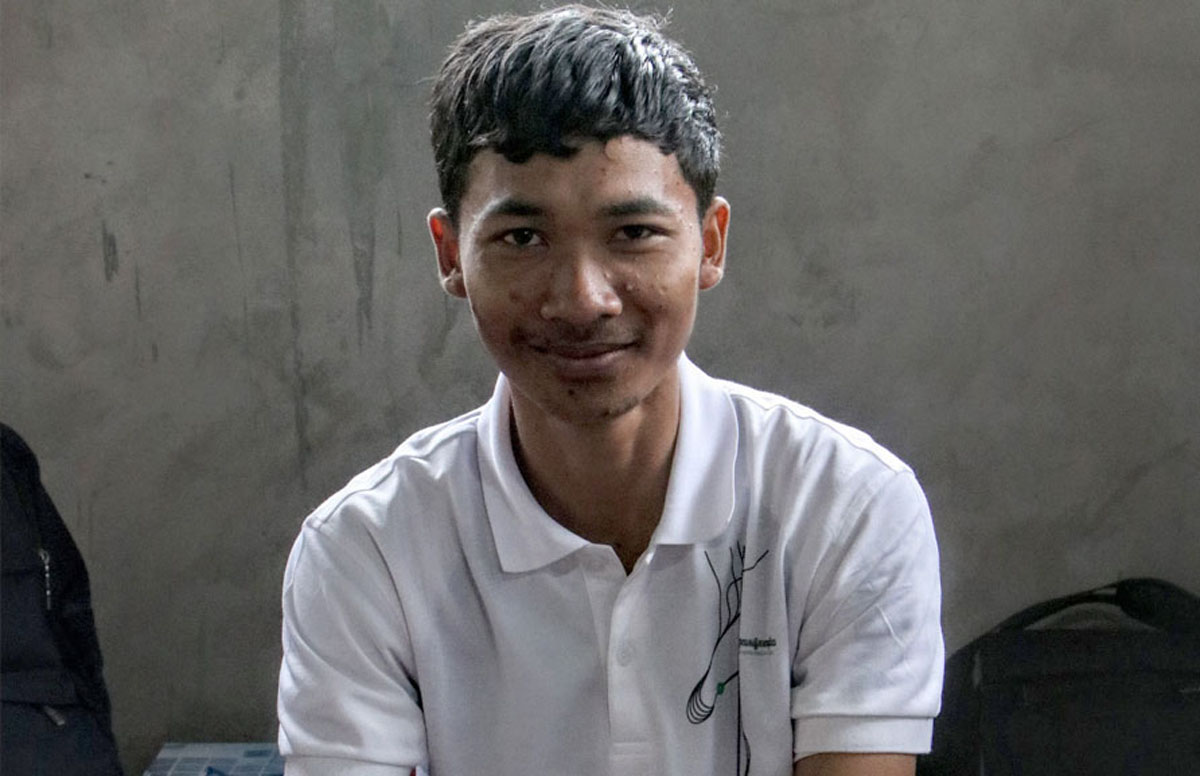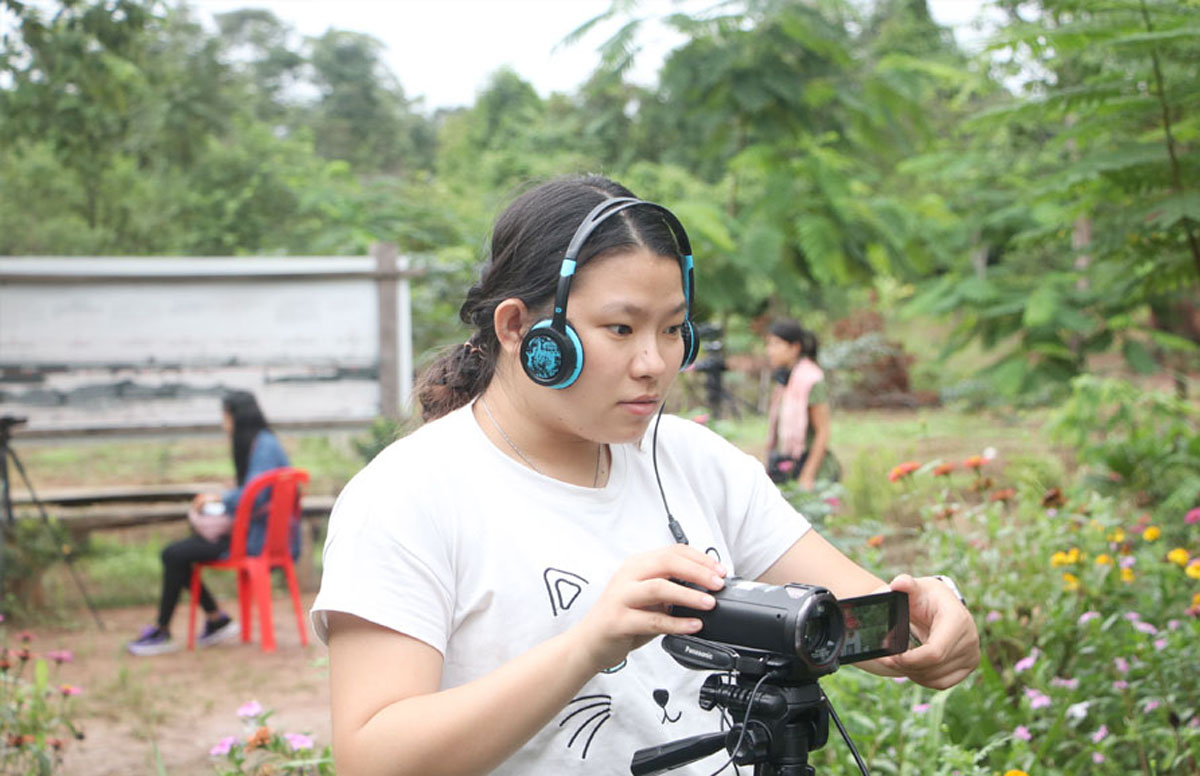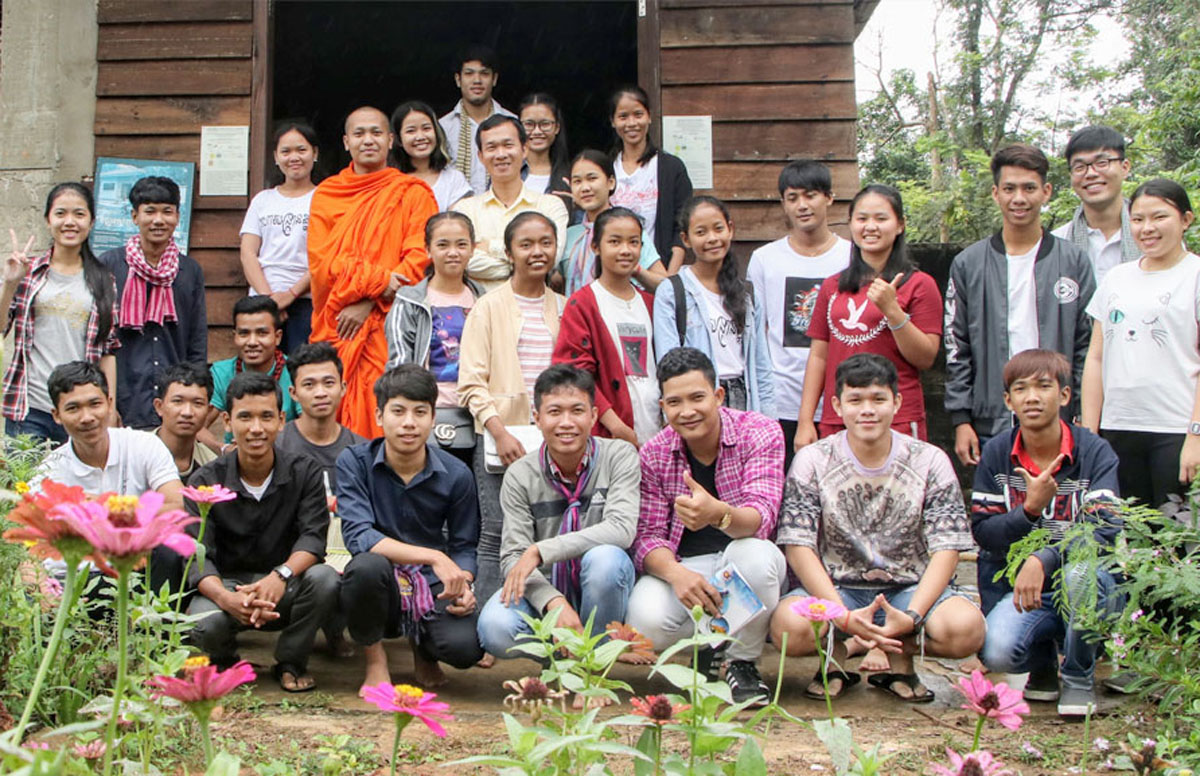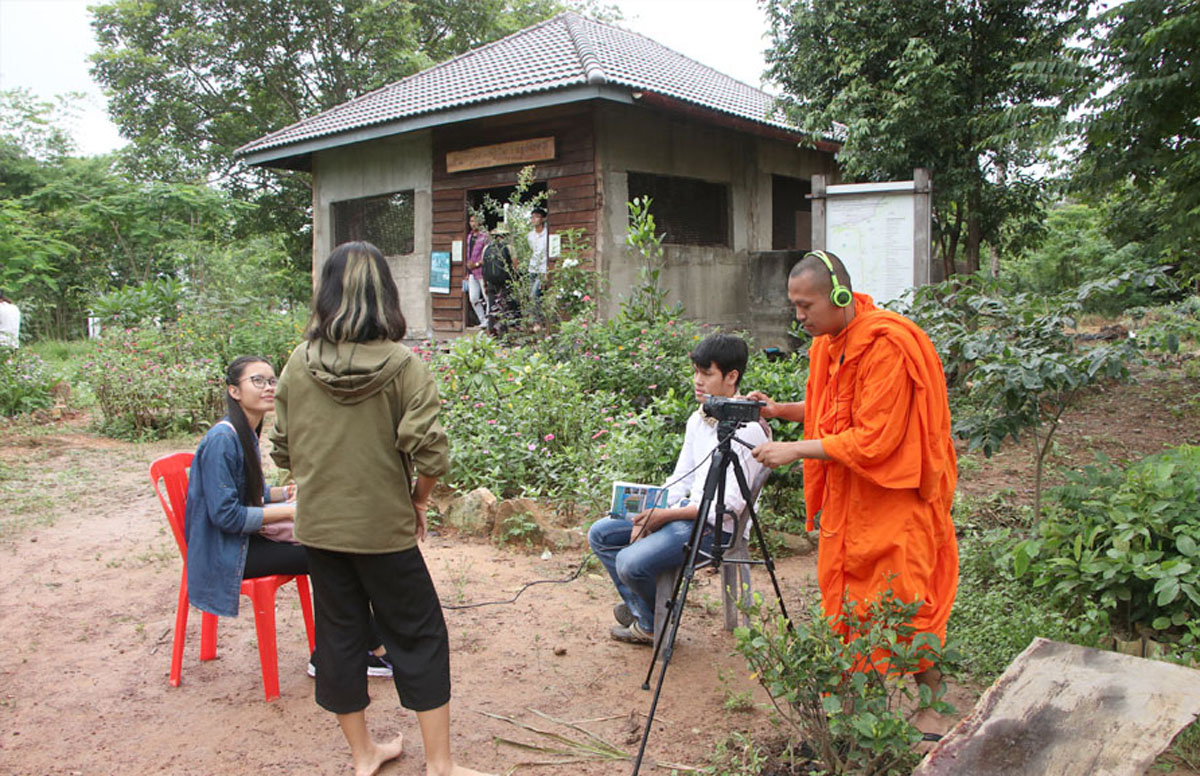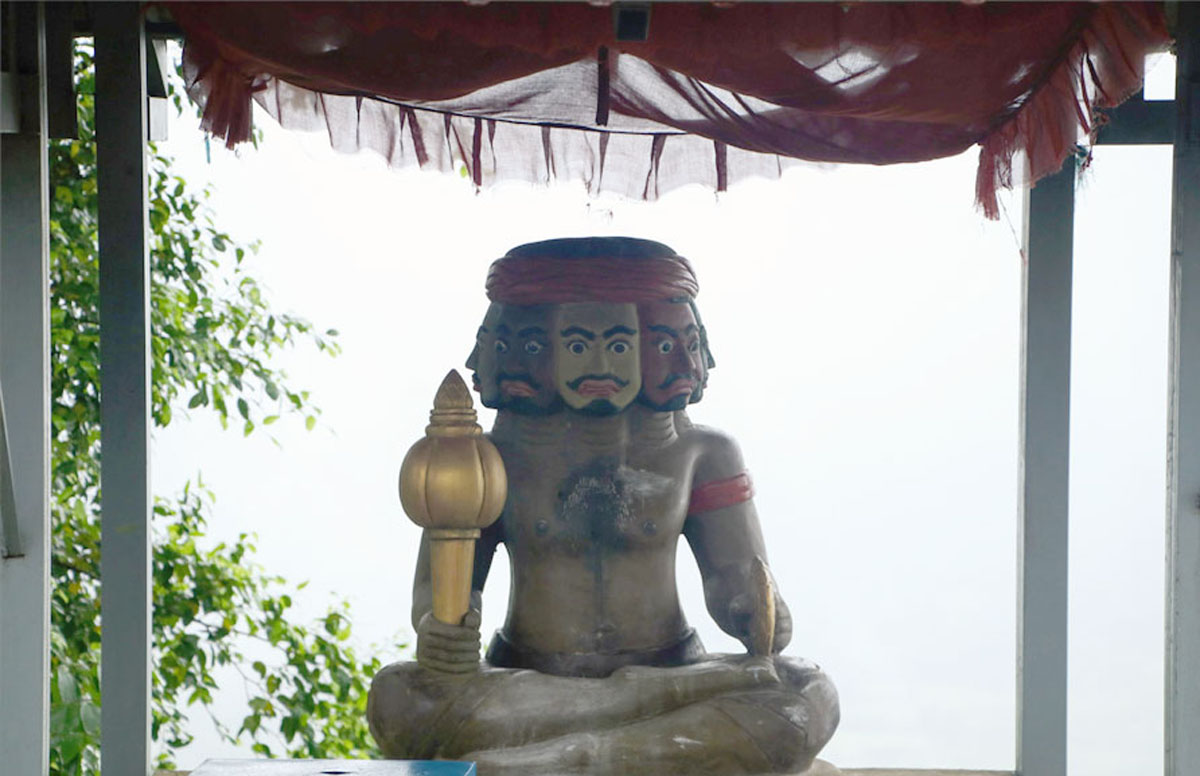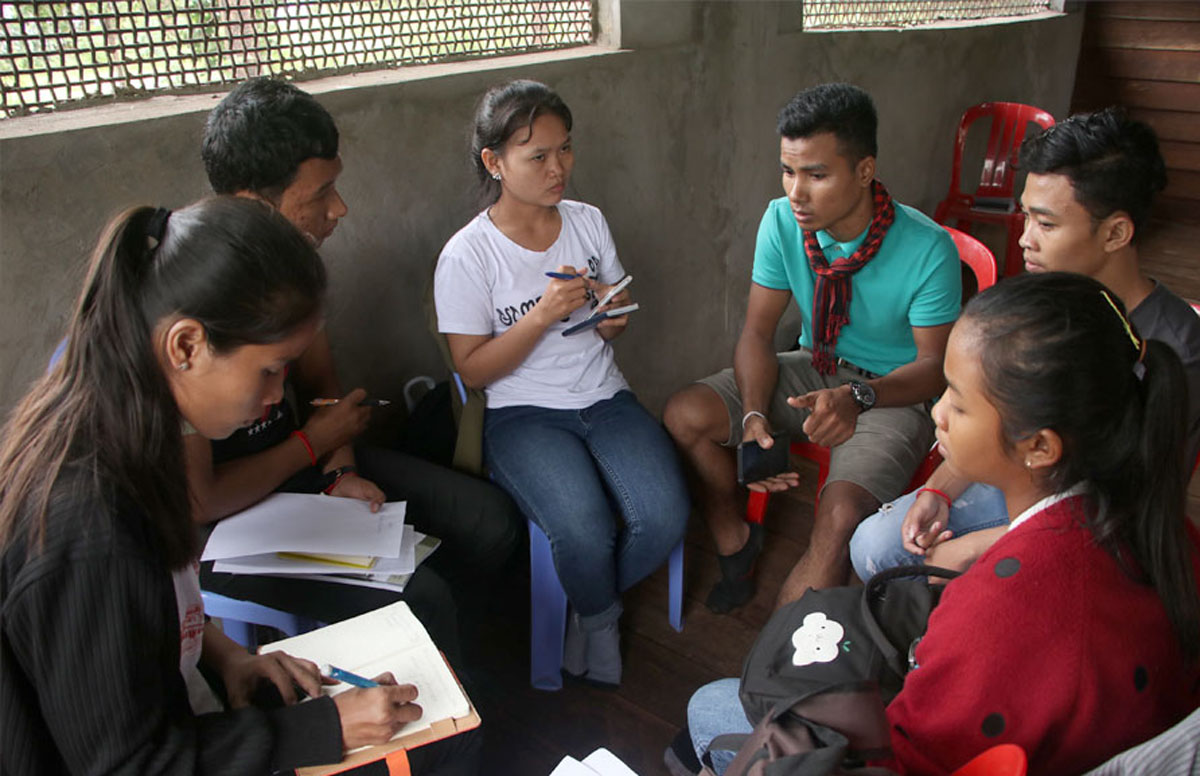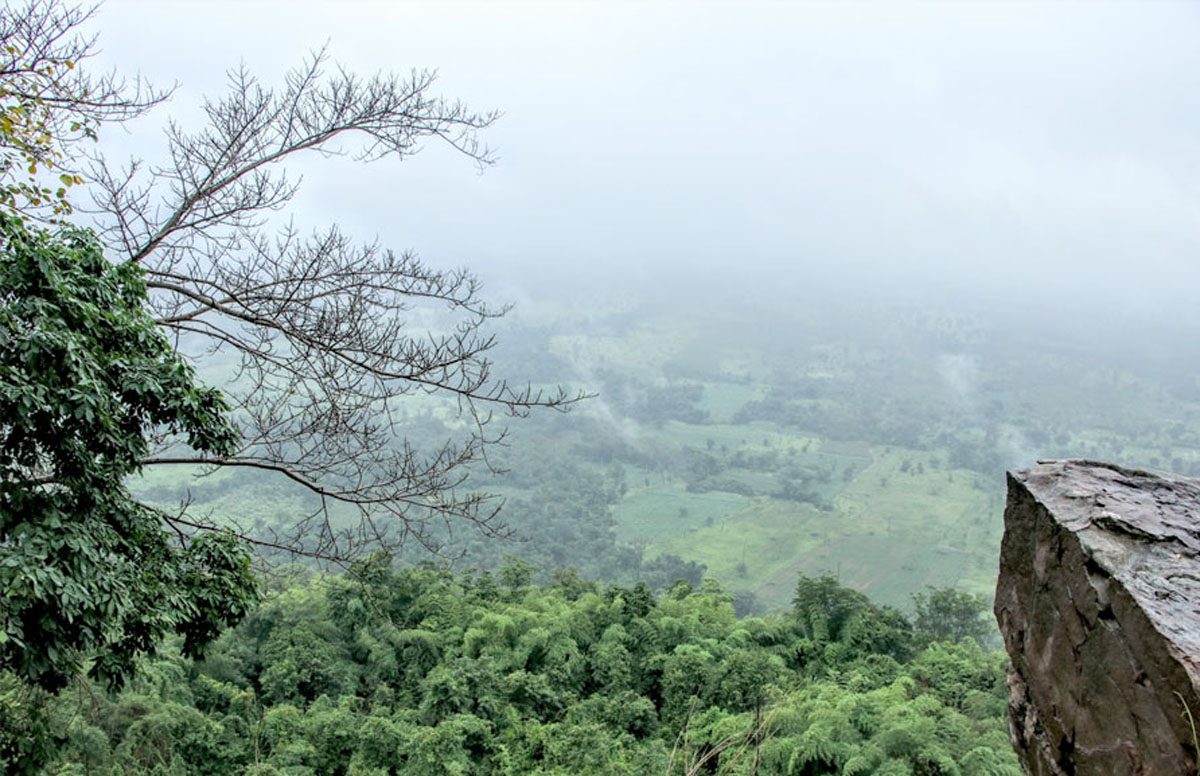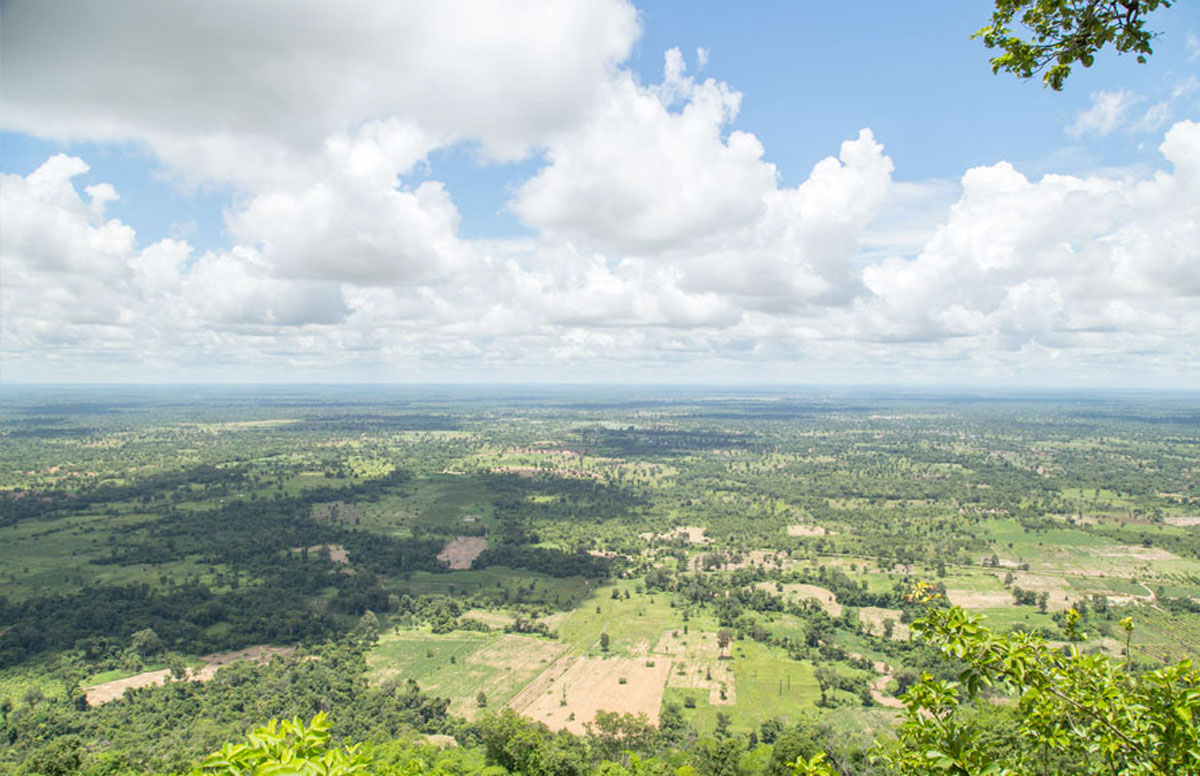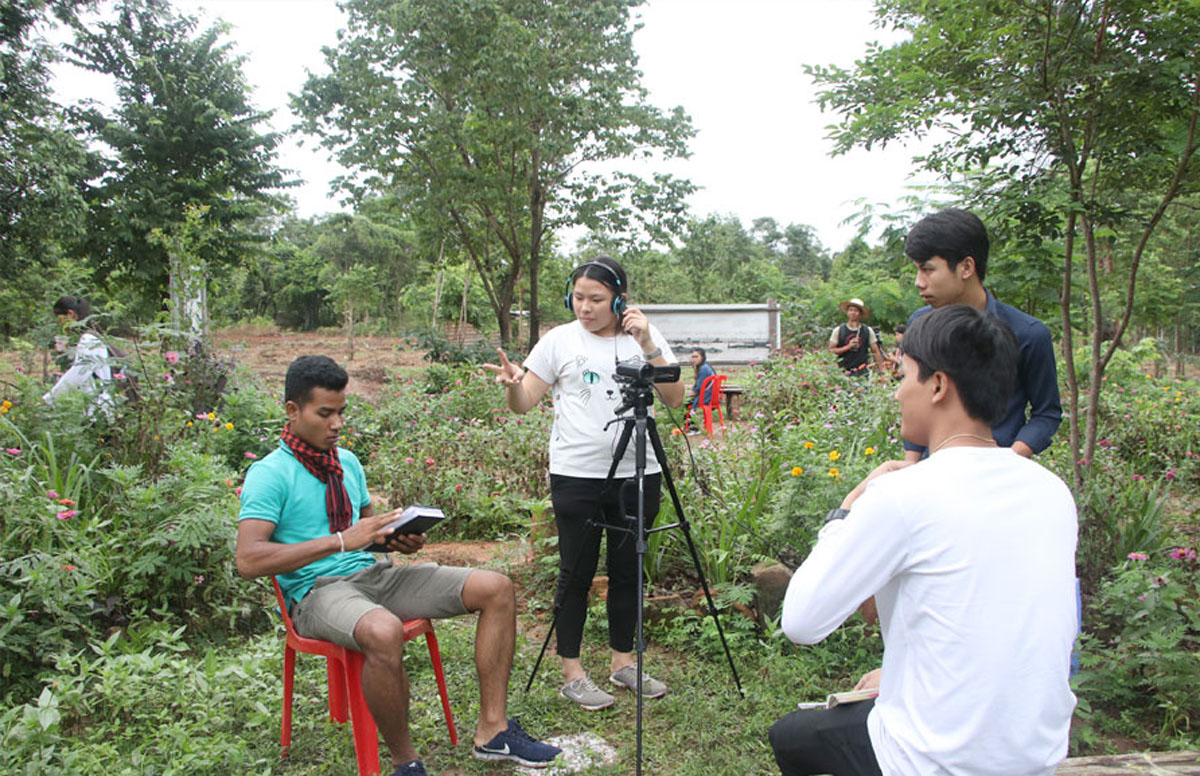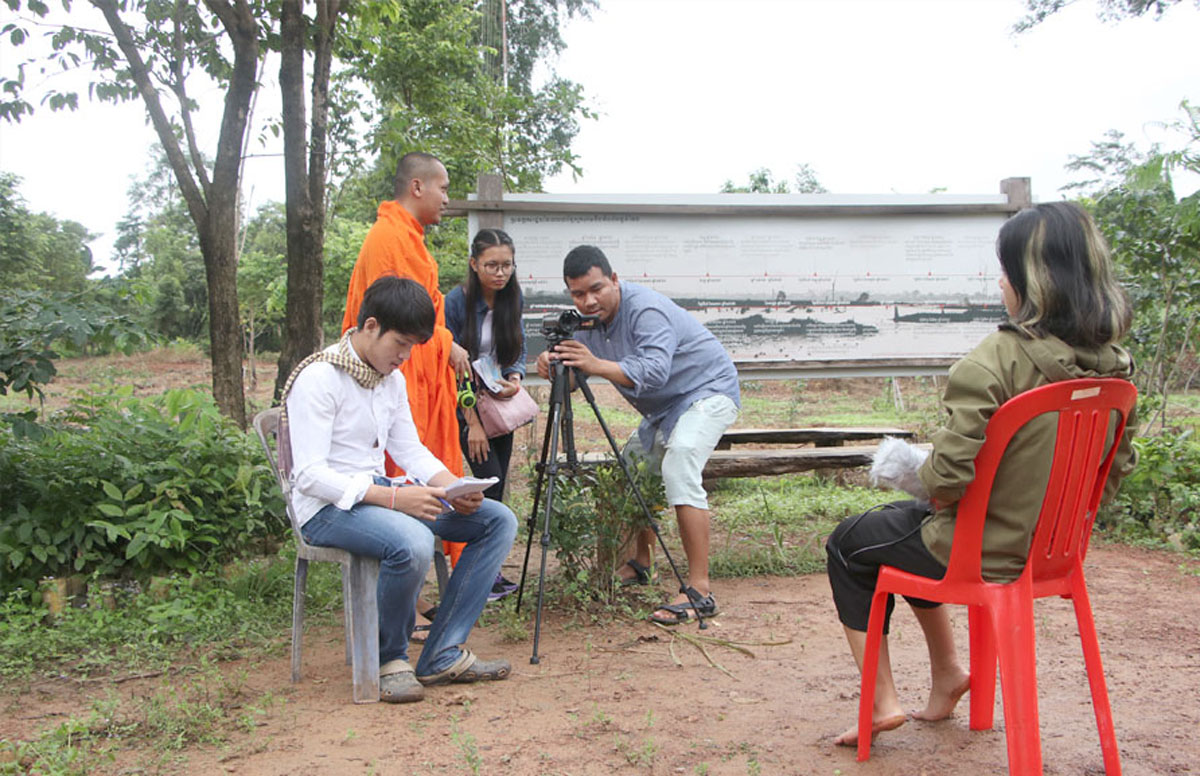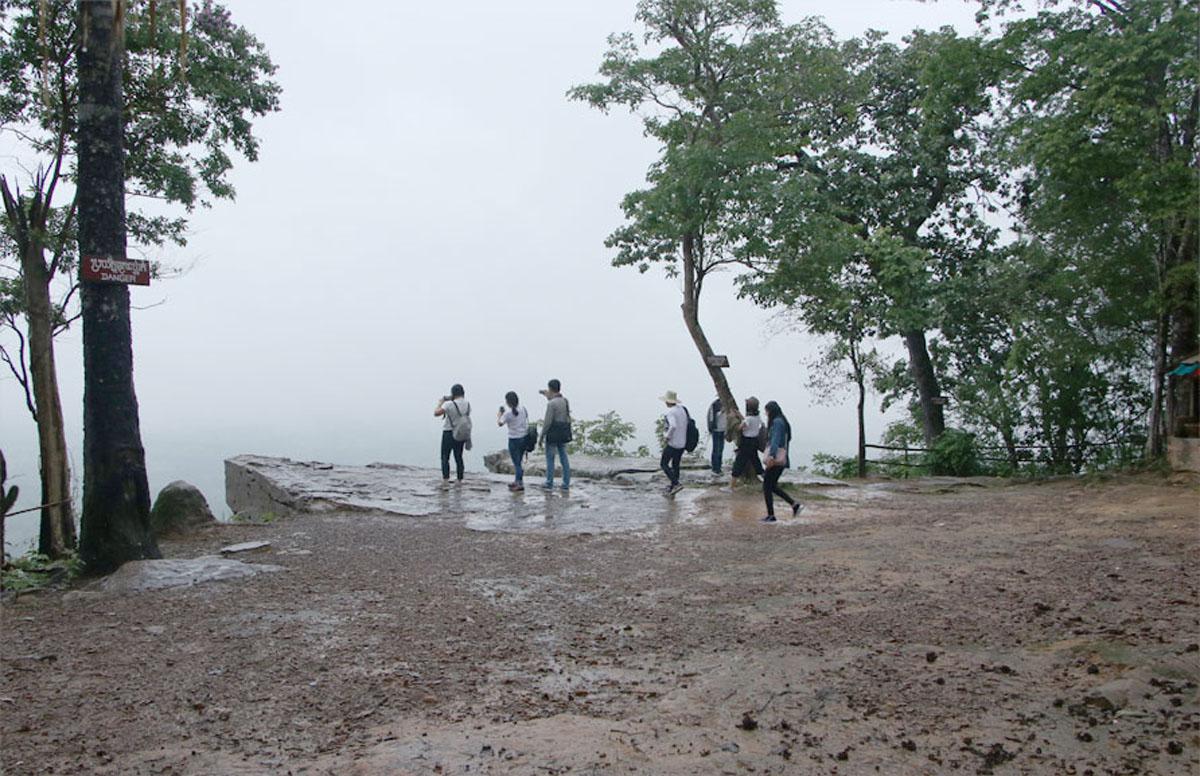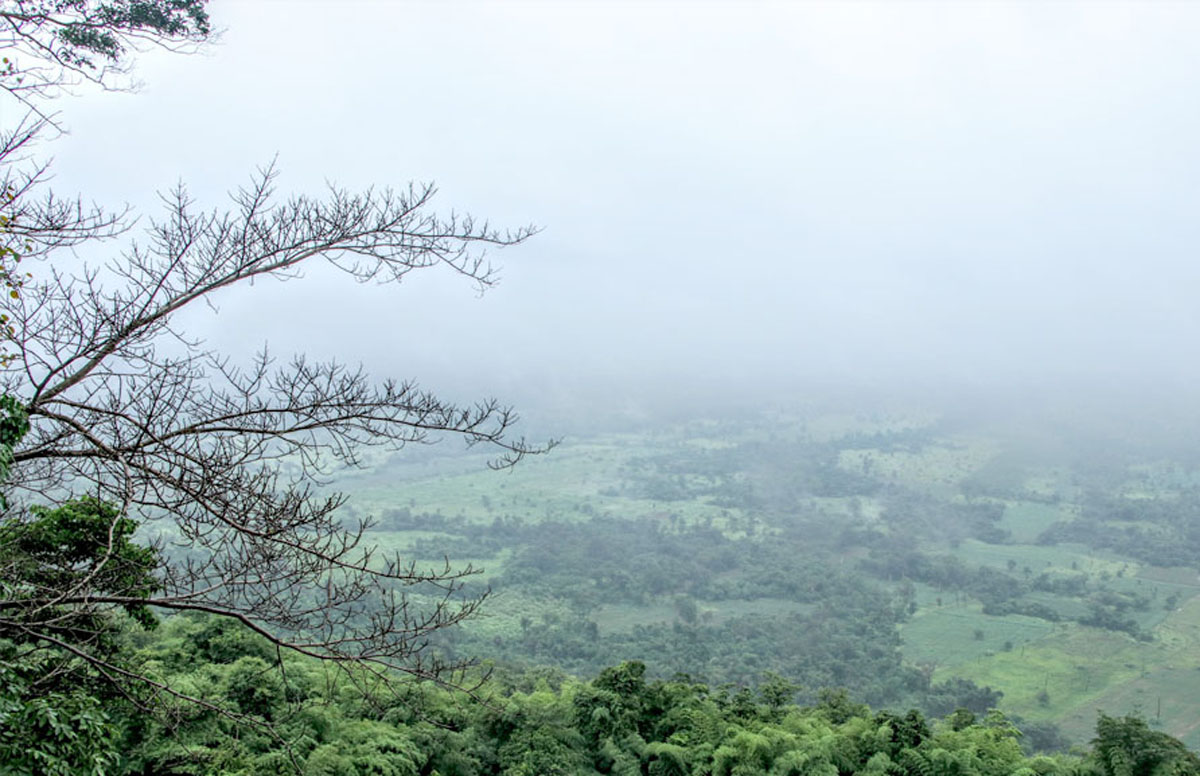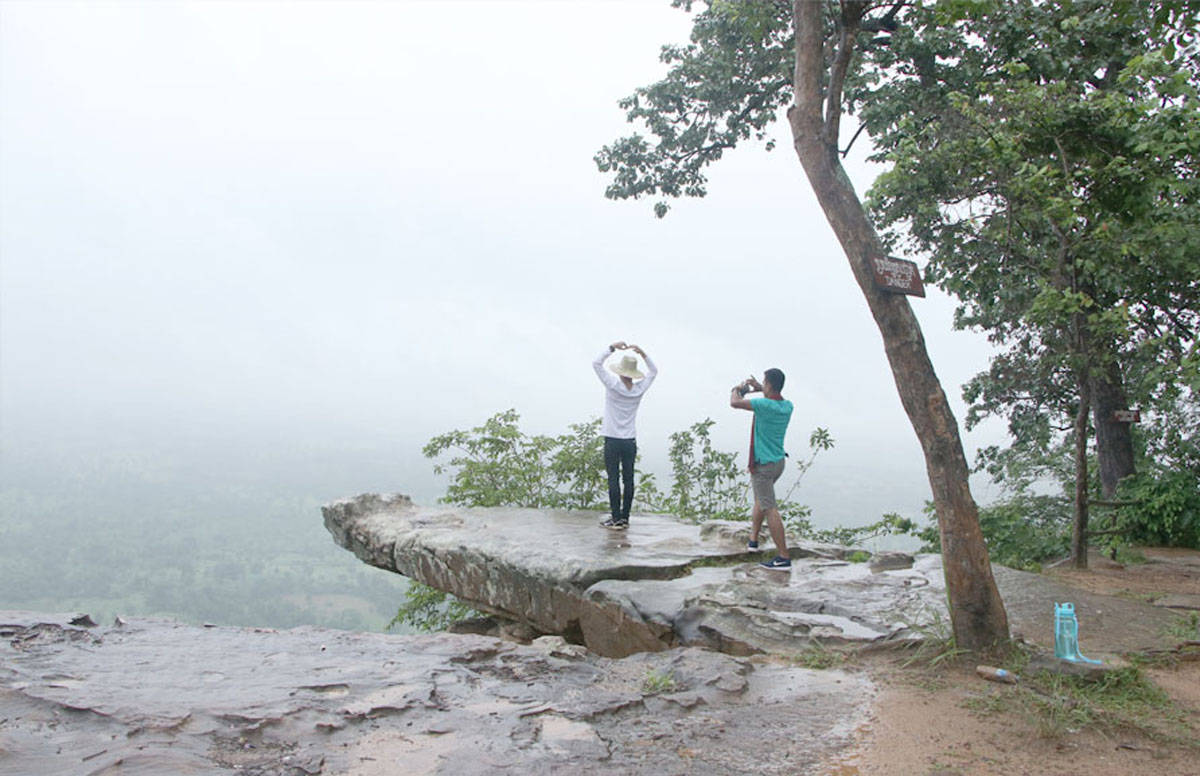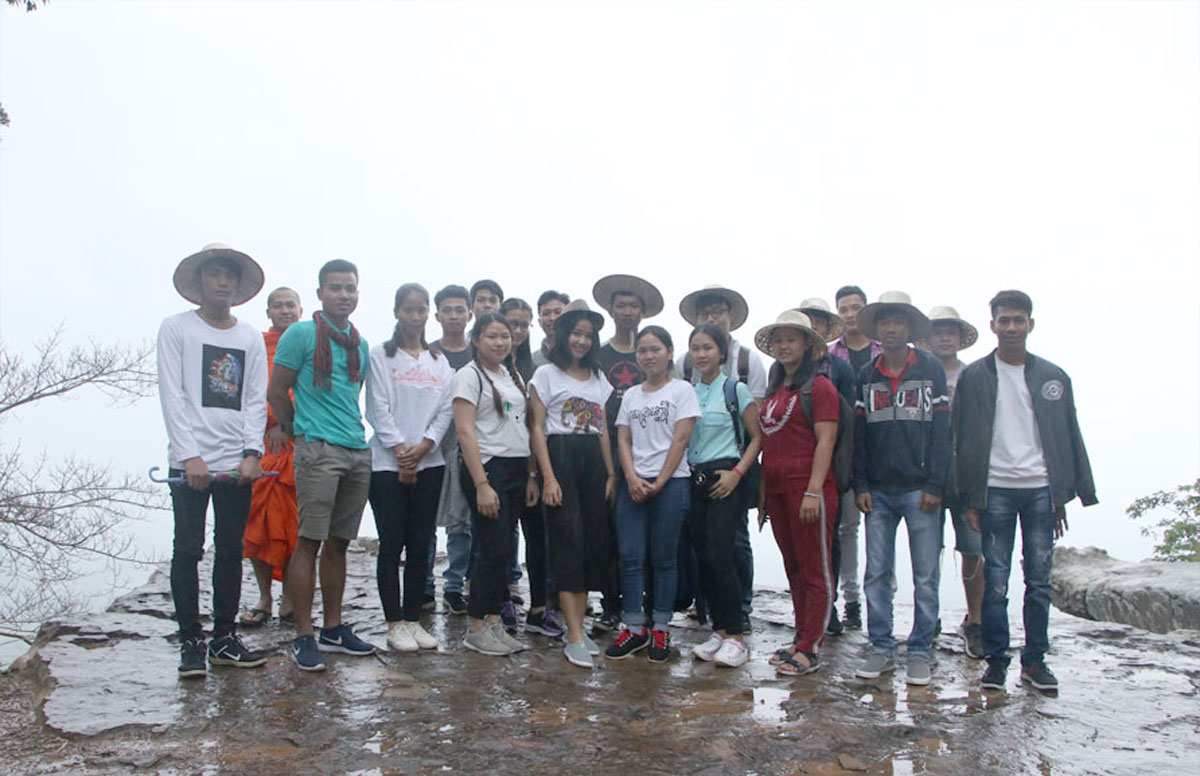MEMORY:
Education
In January 1979, Pol Pot and his brutal Khmer Rouge regime were defeated. Under new progressive leadership, the country struggled to re-emerge from the devastation and pioneer the difficult transition to a new era of peace and tranquility for a country and people that had endured an unprecedented reign of terror. That era of peace and tranquility continued as Cambodia embarked on the 21st century and the Extraordinary Chambers in the Courts of Cambodia, the ECCC, successfully prosecuted and imprisoned senior regime leaders in a sequence of criminal trials that many Cambodians viewed in person. Justice having been served, even if imperfectly, the country and its people are now poised to enter an era of greater peace and tranquility. That peace will be inspired by how the nation reconciled itself to this difficult era and triumphed over it, confident that the tragedy it created will never be repeated.
Anlong Veng Peace Tour
The Anlong Veng Peace Tour program is a community reconciliation initiative aimed at bridging the divide between former Khmer Rouge cadre(KR) in their last stronghold (Anlong Veng) and Cambodia’s younger generation. The intent of the program is to provide an educational platform for the study (and mitigation) of human conflict as well as to encourage greater civic engagement. Using Documentation Center of Cambodia (DC-Cam)’s previous work in genocide education as a model, the project will bring students on a four-day visit to the last KR stronghold of Anlong Veng for the purpose of participating in daily educational activities that require critical thinking, reflection, and debate, and that offer opportunities to interact with, converse with, and ask questions of former KR cadre and victims residing in the area.
The tour is based on a curriculum that is thought-provoking and deeply personal. Through face-to-face discussions with victims and former KR cadres, the program will challenge participants to contemplate the diversity of human experience (both instances of humanity and inhumanity) during times of conflict and social upheaval. The stories will validate the significance of the actions of individual human beings and help foster the most basic components of conflict transformation and civic skills. Concepts such as the ability to reflect, think objectively, and empathize with others are cornerstones to any peaceful, democratic society.
The project will focus on historical empathy as its core objective, and the students who attend the program will be responsible for serving as representatives in their local schools, sharing their learning and insights.
The program not only offers critical insights into Cambodia’s violent history, but it also aims to convey a basic understanding of different theories of conflict resolution and transformation. The tour will meet its objectives through interactive discussions, guided tours of local historical sites, and a curriculum that uses individual stories to convey historical and moral lessons. The tour is designed to be rehabilitative to victims and former KR cadres in that it provides both groups an opportunity to reflect on, and impart their understanding of, their experiences during the Democratic Kampuchea period and the civil war years (1979-1998) that followed.
The Anlong Veng Peace Tour program represents the start of the Peace Center’s work towards its mutually reinforcing objectives of promoting Peace, Education, and Social Enterprise. Through these core objectives, the Center aims to become a leading institution for the development of sustainable approaches to achieving reconciliation and peace in Cambodia, the region, and beyond.
Peace And Human Rights Study Tour
The Anlong Veng study tour is centered on teaching peace and human rights-related topics to students through a physical tour of the history of Anlong Veng and a focused study of the Khmer Rouge period. The project leverages local survivors, who tell their stories during the Khmer Rouge period. Many individuals are former Khmer Rouge cadres, which is important as it gives students an opportunity to ask direct questions on why people participated in the movement and how it affected them. The tour also engages persons who were victims of the Khmer Rouge movement (both people who suffered and those who lost family members). The tour is an important mechanism for expanding the teaching of this history beyond the school textbook by providing in-person accounts of the history. The tours are also important as they serve as a bridge between communities dominated by former Khmer Rouge and communities of surviving victims and the next generation.
ខ្ញុំបាទ ឃន បូរីវត្តន: ខាងក្រោមនេះ ជាមតិរបស់ខ្ញុំពាក់ព័ន្ធនឹងការ ធ្វើទស្សន:កិច្ចនៅអន្លង់វែង នឹកកាលគ្រានៅអន្លង់វែង ខ្ញុំគ្មានចំបែង ក្នុងឱរ៉ា រៀនសូត្រចេះដឹងបានប្រាជ្ញា ឯម្ហូបអាហារក៏គ្រប់គ្រាន់។ សាមគ្គីសាមគ្គាជាជោគជ័យ ពួកយើងឃ្មាតឃ្មីខំរួសរាន់ គ្រប់ៗ រូបភាពថតចំណាំ ទុកផ្ដាំញាតិមិត្តទៅថ្ងៃក្រោយ។ អន្លង់វែងជាទី ឋានល្អពិត ដិតដាមដក់ជាប់ចិត្តខ្ញុំហើយ នៅក្នុងជាតិនេះបាន ស្គាល់ហើយ អន្លង់វែងអើយចាំខ្ញុំផង។ អន្លង់វែងប្រវត្តិជូរចត់ពិត មិនបានប្រឌិតនាំសៅហ្មង ខ្ញុំបានសាកសួរទៅអ្នកផង រៀមច្បងក៏ បានជួយណែនាំ។ រៀនបានដឹងពីអន្លង់វែង ការពិតជាក់ស្ដែងគឺ សាំញាំ អ្នកអន្លង់វែង ស៊ូទ្រាំ ទម្រាំបានផុតពីសង្គ្រាម។ អន្លង់វែង អើយខ្ញុំនឹកអ្នក វាយោត្រជាក់ដល់សសៃឈាម អន្លង់វែងដក់ជាប់ បេះដូងរៀម សង្ឃឹមថាបានទៅម្ដងទៀត។
The vision of the tour guide training is for each tour offered by the Anlong Veng Peace Center to be guided by one survivor and one former member of the Khmer Rouge. Hearing stories from both sides of the conflict will generate a much more powerful, complex, and informative discussion as the historical sites are visited, thereby fostering peace through memory and reconciliation. The overarching goal is to expand the national curriculum to include the entire trajectory of the Khmer Rouge movement (circa 1955 to 1999). By passing a detailed history of the Khmer Rouge movement to younger generations of Cambodians, it is hoped that lessons learned from Cambodia’s violent past will be retained. The specific objectives are to establish and implement a tour guide training program to train at least thirty local tour guides. This initiative is part of the larger effort to establish a genocide prevention education program.
This project will draw from the Extraordinary Chambers in the Courts of Cambodia’s goal to infuse rule of law issues in local and national level institutions. Using Anlong Veng district as the case study, we will study how (and to what extent) concepts of the rule of law as drawn from the ECCC’s work have permeated and impacted villagers and village political processes. We expect that our research will provide useful information on ways to enhance local understanding on fundamental concepts of the rule of law. We also expect that our findings will be informative for other rule of law and democracy initiatives of the USG. Anlong Veng is an ideal pilot community for this project because DC-Cam already has a permanent presence in the community and friendly relations with all key stakeholders from senior government officials to religious and community leaders.
The ultimate goal of this process is two-fold: First, research and report on how and to what extent, concepts of the rule of law, as demonstrated in the ECCC’s work, have impacted villagers and village political processes. Second we will use this information to guide our mentorship of village elders and villagers at-large in key rule of law concepts, which we expect may range from general concepts and practices to more critical legal issues and questions.
A photo of Mr. Peuy Saroeun, 68 years old, former chief of Anlong Veng district council, was taken in front of Anlong Veng Master Plan’s panel hung inside the district hall. His vision for the district was that: “I wish to see a further development. Garment factories should be built to prevent migration. I wish to have a place for the elderly people and women to live securely; and to see ponds being built in each village for the people.”
Community Forum Reports
Community Forum in Tuol Prasat village. Anlong Veng Peace Center, February 13, 2023
Community Forum in O-Chap Trei village. Anlong Veng Peace Center, July 21, 2021
Community Forum in Trapeang Thom village, Anlong Veng Peace Center, June 18, 2021
Community Forum in Tumnum Leu village. Anlong Veng Peace Center, January 15, 2021
The project will begin with an in-depth study on the status of women who served supporting roles during the civil war (1979-1998). We expect this research will illuminate how former female members of the KR became victims of social marginalization and status. The Cambodian civil war (1979-1998) placed women in this region in great danger. Women supported their husbands on the battlefield by carrying ammunition and bringing food supplies from very long distances—all while navigating deep jungles, minefields, and poisonous insects and dangerous animals. In contemporary times, many of these women have diminished in their economic and social status in the community. Based on our initial research, most of these women have become marginalized in society and many have suffered as victims of domestic violence.
This research would examine their history and provide training and mentorship sessions to improve their livelihoods, understanding of their rights, and their access to services. We will use their history to shed light on the vulnerability of women in Cambodia, as well as issues such as domestic violence, poverty, and gender issues. The final output of the project will involve publication of a report on findings, outputs, and recommendations both online and in print.
WOMEN’S RIGHTS FORUM REPORTS
Anlong Veng Peace Center: Women’s Rights Forum in Sralao Sraong village on May 17, 2023
Anlong Veng Peace Center: Women’s Rights Forum on March 14, 2023
Anlong Veng Peace Center: Women’s Rights Forum on January 13, 2023
Anlong Veng Peace Center: Women’s Rights Forum on June 16, 2021
DOWNLOAD A REPORT ON WOMEN IN ANLONG VENG BOOK

